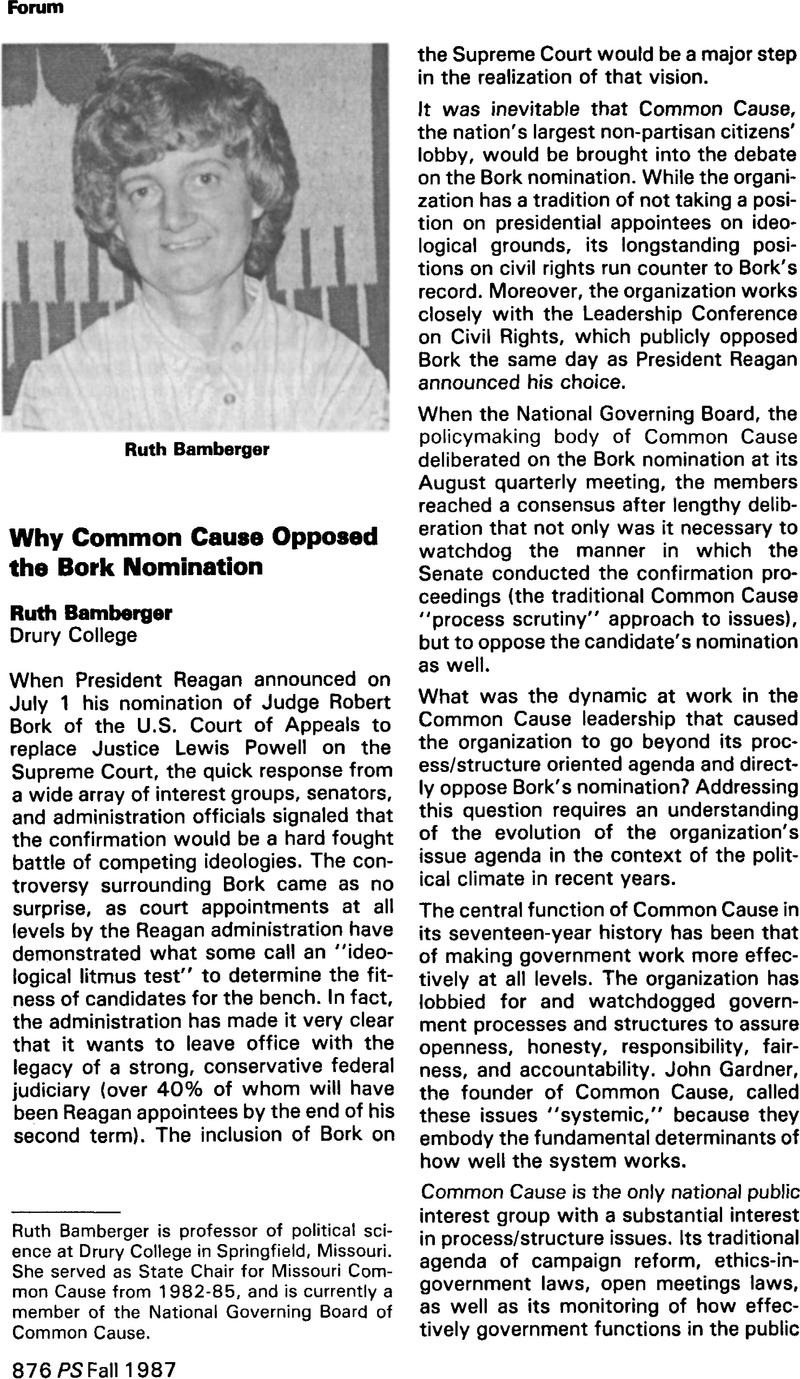Article contents
Why Common Cause Opposed the Bork Nomination
Published online by Cambridge University Press: 21 November 2022
Abstract

- Type
- Other
- Information
- Copyright
- Copyright © The American Political Science Association 1987
References
1 As a followup to the staff report to the Board, Common Cause released in January, 1986, a study entitled “Assembly-Line Approval: ACC Study of Senate Confirmation of Federal Judges,” which was reported in major newspapers around the country. While the study was criticized by the leadership of the Judiciary Committee, it did have an impact on some Committee members who exhibited more aggressiveness in questioning nominees.
2 According to the CC report, district court nominations were ideologically motivated also. Two of the most controversial nominees from southern districts, Sidney Fitzwater and Jefferson Sessions, had poor civil rights records. Sessions received only a minimally qualified rating from the ABA, and the Judiciary Committee voted not to send his nomination to the floor.
3 For example, as a member of the Indiana state legislature, Manion co-sponsored a bill encouraging public schools in the state to post the Ten Commandments immediately after the Supreme Court had declared such an action unconstitutional. Manion maintained that the Court's decision applied only to the school district that was the subject of the litigation.
4 In addition, the Board was most sensitive to the fact that its Chair, Archibald Cox, was the Watergate Prosecutor fired by Bork who, as Solicitor-General, carried out the White House order after the Attorney General and Assistant Attorney General resigned for refusing to do so. Cox recused himself from the Board deliberations on the Bork matter and will remain silent on the issue during the Senate proceedings on the nomination.
- 1
- Cited by


